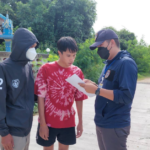
Abstract
Recently, The Lancet published a study on the effectiveness of COVID-19 vaccines and the waning of immunity with time. The study showed that immune function among vaccinated individuals 8 months after the administration of two doses of COVID-19 vaccine was lower than that among the unvaccinated individuals. According to European Medicines Agency recommendations, frequent COVID-19 booster shots could adversely affect the immune response and may not be feasible. The decrease in immunity can be caused by several factors such as N1-methylpseudouridine, the spike protein, lipid nanoparticles, antibody-dependent enhancement, and the original antigenic stimulus. These clinical alterations may explain the association reported between COVID-19 vaccination and shingles. As a safety measure, further booster vaccinations should be discontinued. In addition, the date of vaccination should be recorded in the medical record of patients. Several practical measures to prevent a decrease in immunity have been reported. These include limiting the use of non-steroidal anti-inflammatory drugs, including acetaminophen to maintain deep body temperature, appropriate use of antibiotics, smoking cessation, stress control, and limiting the use of lipid emulsions, including propofol, which may cause perioperative immunosuppression. In conclusion, COVID-19 vaccination is a major risk factor for infections in critically ill patients.



